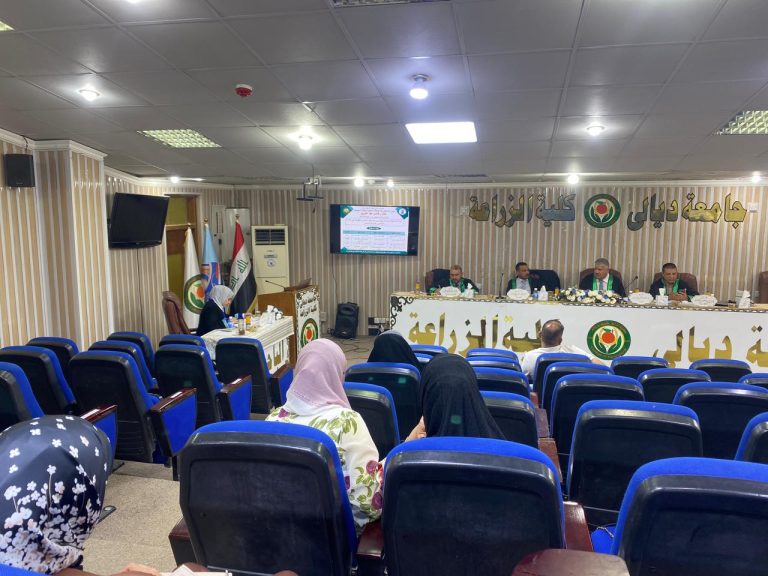A Master’s thesis from the College of Agriculture examining the efficacy of silymarin oil against the residues of mycotoxins in the production performance of laying hens.
- Categories News
- Date October 16, 2024

The College of Agriculture at the University of Diyala has discussed a Master’s thesis titled “A Study on the Efficacy of Silymarin Oil Against Mycotoxin Residues in the Production Performance of Laying Hens.”
The research presented by the student, Makarem Qasim Abdul Karim, evaluated the effectiveness of silymarin oil and its impact on the production performance of hens. In this experiment, 108 laying hens of the Lohmann Brown strain, aged 14 weeks, were used. The birds underwent a two-week acclimatization period during which they were fed a standardized diet to adapt to the environment and the feed, followed by an additional two-week preliminary period prior to the commencement of the experiment, allowing them to adjust to the experimental conditions and diets. The experiment began when the hens were 18 weeks old. The birds were sourced from a local company in the region, and their weights were recorded at the start of the experiment. They were then randomly assigned to three treatments, with each treatment containing three replicates, each consisting of 12 hens. The initial weeks, spanning from 14 to 18 weeks of age, served as a preliminary period for the hens to acclimate to the environment of the hall, the feeders, and the nesting boxes. During this preliminary phase, the hens were fed a standardized diet that met all the required nutritional components, in accordance with the recommendations of the producing company.
The study reached several conclusions, including: the addition of silymarin oil to the feed contaminated with mycotoxins resulted in a significant improvement in the production traits during the third period. It can be concluded that the inclusion of silymarin oil in the mycotoxin-contaminated feed plays a role in enhancing the biochemical traits across all periods. Additionally, the incorporation of silymarin oil into the mycotoxin-contaminated feed was found to improve the residues of mycotoxins in the meat (thigh, breast, and liver) using high-performance liquid chromatography (HPLC).
The study recommends: the utilization of silymarin oil when feeding poultry exposed to other mycotoxins to improve the production traits of broiler chickens, and further research on the addition of silymarin oil in feeding other poultry species, such as turkeys and quails, that are also affected by mycotoxins.



You may also like

A Master’s Thesis at the College of Agriculture.
21 April, 2025

A Master’s Thesis at the College of Agriculture.
16 April, 2025

A Master’s Thesis at the College of Agriculture.
14 April, 2025
